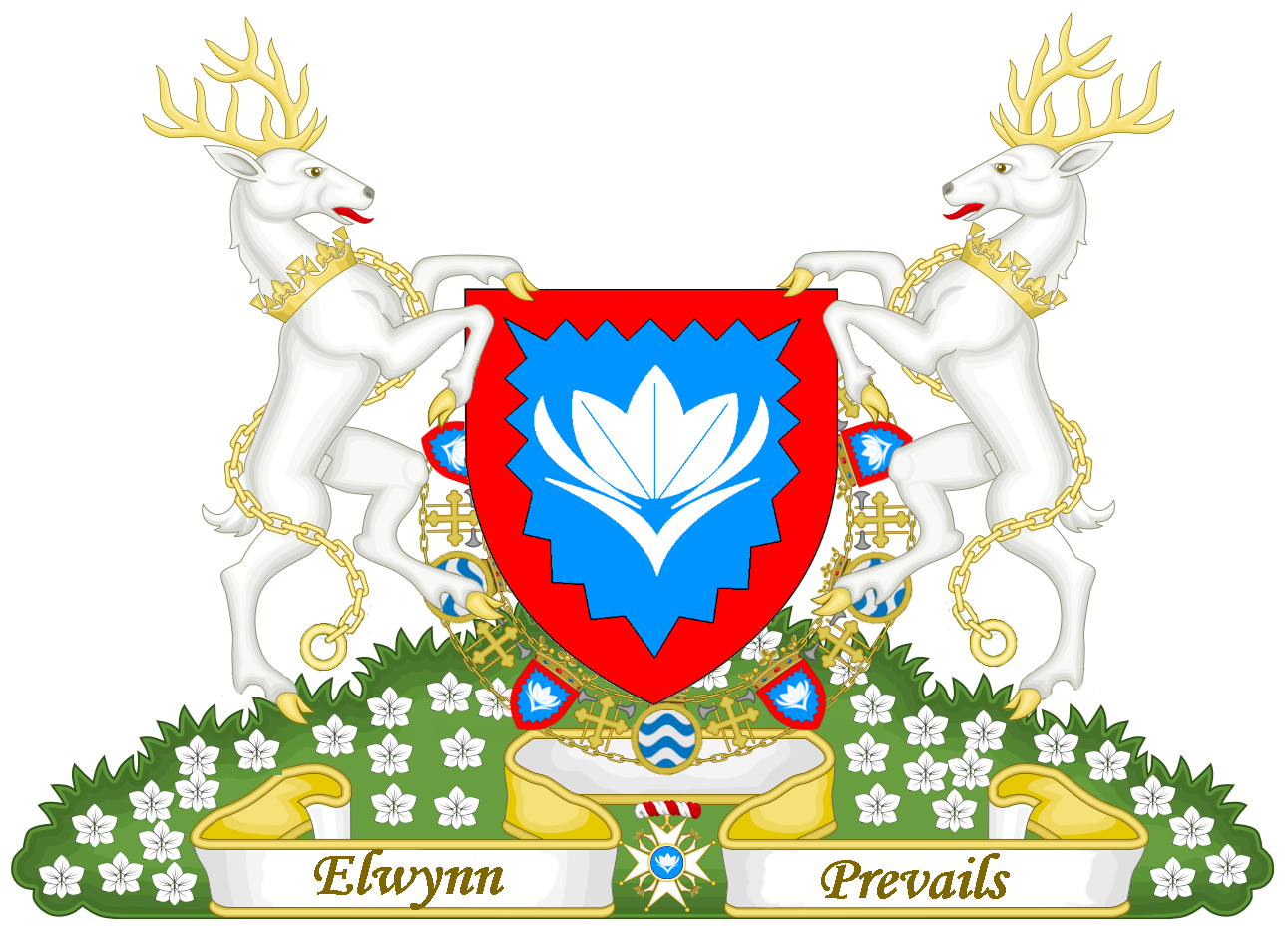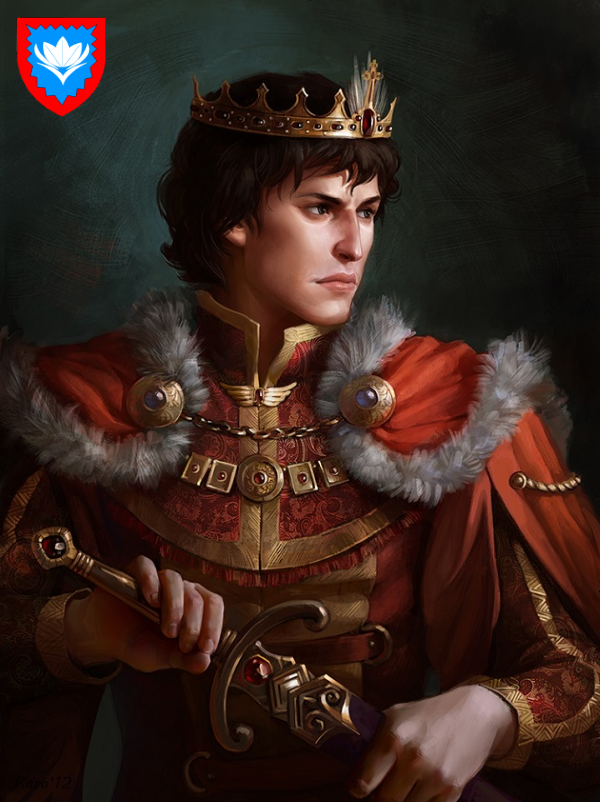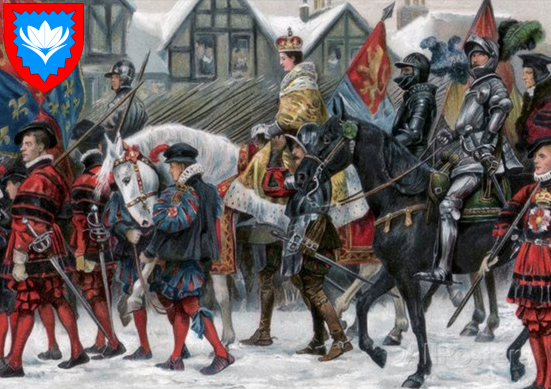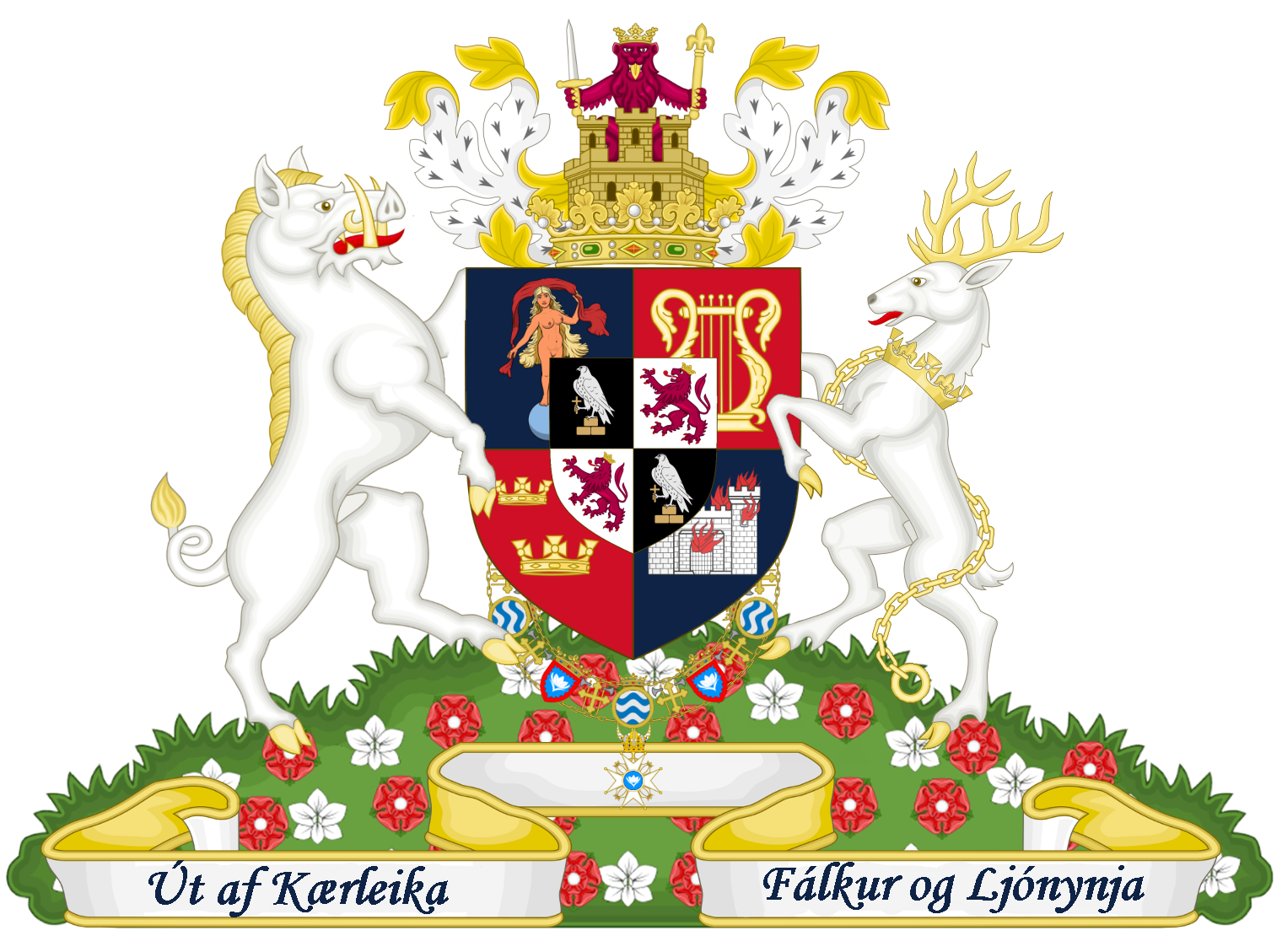Royal Family of Elwynn
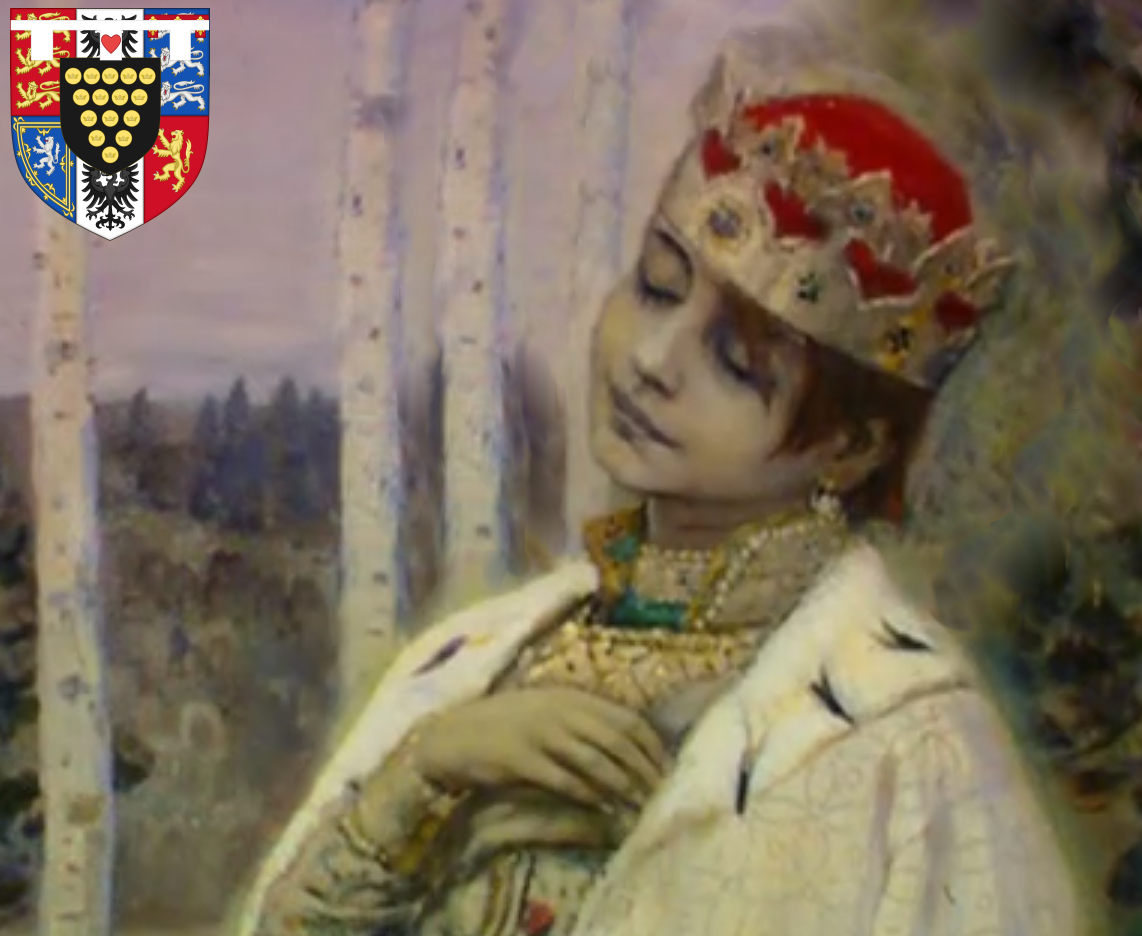
The legal and cultural term Royal Family of Elwynn denoted the Ruling Dynasty of the Flower of the North. The Royal Family of Elwynn was headed by the King of Elwynn. It is also known as the House of Orchids.
Contents
Former Members
- Adam Anushiruwân Hilding Ayreon-Kalirion ibn al-Majeed bin Sathrati of Waffel-Paine (excluded);
- Arn David Shapur Ayreon-Kalirion ibn al-Majeed bin Sathrati of Waffel-Paine (assassinated);
- Jonathan Ayreon-Kalirion (assassinated);
- Rostam Job Cashmael Ayreon-Kalirion ibn al-Majeed bin Sathrati of Waffel-Paine (assassinated).
- Æsileif Haraldsdóttir of the Houses des Vinandy and Ettlingar Freyu;
- Audun Joel Hallbjörnsson of the Houses of Ayreon-Kalirion and of the Descendants of Freyja;
- Charlotte Arkadius- og Æsileifsdóttir of the Houses des Vinandy and Ettlingar Freyu;
- Hallbjörn Haraldsson of the Houses of Ayreon-Kalirion and of the Descendants of Freyja;
- Fjǫrleif Hallbjörnsdóttir of the Houses of Ayreon-Kalirion and of the Descendants of Freyja;
- Geirbjörg Gefialdrsdottir of the House of the Descendants of Freyja;
- Inga Hallbjörnsdóttir of the House of the Descendants of Freyja;
- Liv Djupvik;
- Noor as-Salaam bint Daniyal Umra Suleiman Ayreon-Kalirion ibn al-Majeed al-Osman bin Sathrati af Ettlingum Freyu Umm Zahir al-Din of Waffel-Paine;
- Thorstein Noah Hallbjörns- og Esthersson of the Houses of Waffel-Paine, of Ayreon-Kalirion, and of the Descendants of Freyja;
- Vidar Salim Livarson Ayreon-Kalirion ibn al-Majeed al-Osman bin Sathrati of Waffel-Paine;
- Vilhjálm Daniel Gudrödar Noahs- og Noorsson of the Houses of Ayreon-Kalirion and of the Descendants of Freyja;
- Zahir al Din Benjamin Rai Ayreon-Kalirion ibn al-Majeed bin Sathrati of Waffel-Paine.
Kingly Powers of Protection
The King of Elwynn has the power to, by ordinance, make rules and regulations which have the force of law, with power to attach penalties for their infringement, to protect the Royal Family's ancient rights, privileges, free customs, honour, dignity, peace, order and welfare, to protect its official documents and patrimony as well as the private papers and property of its members, and to protect itself and its members against any person or persons interfering with, molesting, harrassing, threatening or attempting to intimidate them in their pursuit of happiness and liberté de vivre.
The Family Council
About
The Family Council was one of the five principal councils of the King of Elwynn. The other four are the Royal Courts of Justice, the Council of Eliria, the Royal Parliament and the Parlement des Pairs, the assembly of the Pairs of Elwyna. It was created in the year 1624 in the self-same decree issued by the Governing Steward of Elwynn, the Storjarl Hallbjörn Haraldsson, that defined the membership of the House of Orchids, which was at the time - before the elevation of the Elwynnese Union to a kingdom in 1629 - referred to as the Serene Family of Elwynn. The council exist to assist the King with upholding the honour, dignity, peace, order and welfare of the House of Orchids.
At present the Family Council has one formal power under Elwynnese Law: the sole power to making an application to the King for the issuance an Instrument of Membership Termination concerning a member of the House of Orchids; no one's membership in the Royal Family of Elwynn can be terminated without such application. The aforesaid council does, however, has the King's ear.
For the first two decades of its formal existence was the Family Council was quite the dormant body, not ever convening until the year 1645. The first meeting was held in the aforesaid year to discuss the expulsion of Adam Ayreon-Kalirion from the Royal Family of Elwynn. Those talks ultimately led to the council filing an application for an Instrument of Membership Termination concerning Adam. The aforesaid application was granted by the King and Adam was removed from the roll of membership of the House of Orchids.
By convention is the Family Council presently composed of the five most senior adult members of the House of Orchids, except for the King, and presided over by the one of them with the longest service as Governing Steward of Elwynn. The King is, is couse, free to make any changes to the composition and presidency of the council He pleases.
Nowadays the Family Council convenes regularly to discuss the variety of matters that arises concerning the Royal Family of Elwynn. The council usually meets in either the Duke Harald Chamber of the Avaldsborg in the Royal City of Avaldsnes or in the Viruja Chamber of Castle Islàn of the Old Harbour of in the Royal City of Hyfrost.
Traditions and Customs and Governing Texts
Subject to the absolute authority of the King of the Flower of the North, as well as the provisions of Royal Law, the Family Council was chiefly governed by the following ancient texts and the customs and traditions derived therefrom:
- Lady Anne-Marie's Treatise on the Sovereign Household (in particular the provisions on the House Council and the Imperial Family Council);
- Traité des Droits du Roi d'Ibelin (especially the stipulations concerning the Conseil de la Famille Royale).
His Riverine Majesty is, of course, free to introduce, revive and discontinue any custom and tradition to the Family Council He pleases.
Last Members of the Family Council
- Audun Joel Hallbjörns- og Esthersson of the Houses of Ayreon-Kalirion and of the Descendants of Freyja;
- Hallbjörn Haraldsson of the Houses of Ayreon-Kalirion and of the Descendants of Freyja;
- Fjǫrleif Hallbjörnsdóttir of the Houses of Ayreon-Kalirion and of the Descendants of Freyja;
- Geirbjörg Gefialdrsdottir of the House of the Descendants of Freyja;
- Noor as-Salaam bint Daniyal Umra Suleiman Ayreon-Kalirion ibn al-Majeed al-Osman bin Sathrati af Ettlingum Freyu Umm Zahir al-Din of Waffel-Paine.
